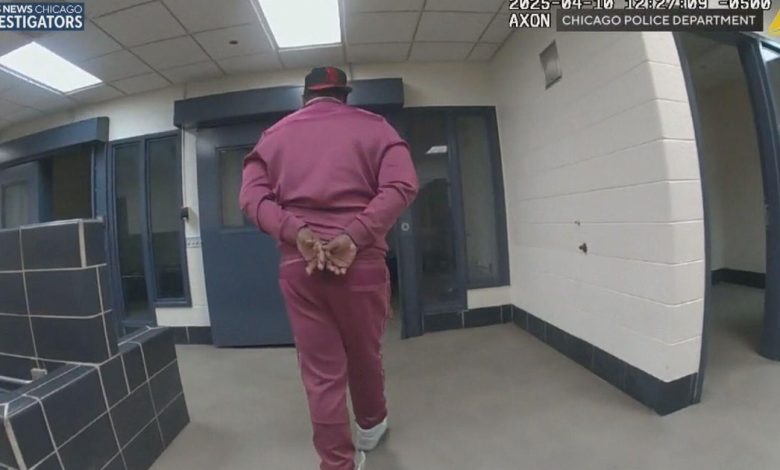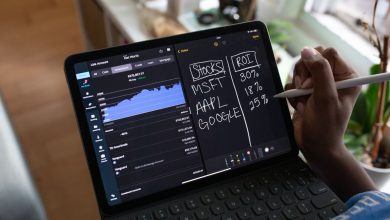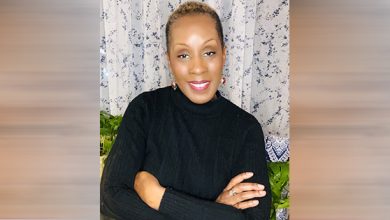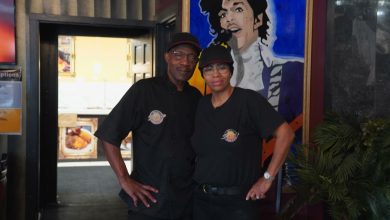Black gun owners in Chicago charged with felonies despite valid FOID cards, CCLs; say they’re traumatized

An investigation by CBS News Chicago uncovered several times where police stopped Black gun owners for minor traffic violations and then charged them with felonies — even though they had legal firearm licenses.
The findings prompted a rebuke from the National African American Gun Association. The ordeal also led to an exhausting toll and financial strain on the drivers. They had valid firearm licenses, but because of their arrests, spent months fighting to get charges dropped and expunged from their records.
Some have sued, or plan to sue Chicago police, accusing the department of violating their civil rights.
If you believe you were wrongly arrested despite having valid firearm licenses, tell us here or fill out the survey at the bottom of this story.
“My rights were violated”
One of those drivers is 46-year-old Louis McWilliams, a Tinley Park resident who owns a local cheesecake company, Ann’s Flavored Cheesecakes. He was charged with a felony in April after being pulled over on Chicago’s South Side on his way to a business meeting. The case was later dismissed.
“This has been very traumatic for me,” McWilliams said. “I feel like my rights were violated.”
When Chicago police stopped him on West 79th Street, they told him he had a missing front license plate, according to the arrest report. Police body camera video shows that after the police stopped him, the first thing he did was tell the officers he had a gun in the car.
According to Illinois state law, in order to legally carry a gun in your car, you need a Firearm Owner Identification (FOID) card and a concealed carry license (CCL). CBS News Chicago reviewed McWilliams’ firearm license and confirmed it was valid.
The arrest report also acknowledged he was in possession of his card at the time of the stop. McWilliams can even be seen handing it to the officer in the video, and he said he was expecting that to be enough.
But it wasn’t.
When an officer pulls over a driver, it’s standard practice to check a database operated by the Illinois State Police, called LEADS. If the driver has a gun on them, or in the car, it’s also common for officers to check LEADS to verify the FOID and CCL are valid. In McWilliams’ case, the officer told him the CCL didn’t appear on the database.
Police cited that as a justification for his arrest, and the Cook County State’s Attorney’s Office approved two felony charges: aggravated unlawful possession of a weapon, and unlawful use of a weapon.
“This shows that no matter how much you follow a system of which they create, they can still deem you wrong,” McWilliams said. “I feel like that’s unfair.”
“I think they made a quick, hasty, improper decision on this case,” said Irv Miller, CBS News Chicago’s legal analyst. A former prosecutor once in charge of reviewing police cases, Miller also believes McWilliams never should have been charged.
“He showed [police] a valid CCL card,” Miller said. “Not only did they see it, they actually took possession of it and inventoried it, gave it a Chicago Police Department inventory number, and sent it off to headquarters.”
It’s also unclear why the information was not in LEADS, or why the officers chose to arrest Williams. A spokesperson with the state police would not comment on specific cases but said if an officer is unable to check the status of a FOID or CCL in LEADS, “the officer should not take any law enforcement actions as it relates to a potential FOID/CCL violation.”
CCL law in Illinois also indicates physical or digital cards are sufficient if a driver is stopped. The law does not specify that the information must also be in the state’s system to be deemed valid.
“The statute says if you present to an officer a valid FOID card, and you also have a valid CCL, that means you’re not in violation of the law if you’re carrying a gun,” Miller said.
CPD Supt. Larry Snelling declined to be interviewed for this story. A spokesperson for the department would not answer questions via email about the circumstances of McWilliams’ arrest.
In the body camera video, an officer can be heard telling McWilliams that if further checks into his license came back clean, “Then they just let you go, apologize and let you go about your day.” But that’s not what happened. McWilliams spent a day in jail.
“It was just deplorable. There were a thousand-plus fruit flies flying around in every holding cell,” he said. “There were roaches falling from the ceiling.”
And immediately McWilliams felt the impact on his cheesecake business. He said he had a meeting related to his he day he was stopped. Because he was arrested, he couldn’t make the meeting and said he lost a deal with a major franchise.
McWilliams also lost time. He spent months in court fighting to get the felony charges dismissed and his impounded car returned. It wasn’t until mid-June, three months after he was arrested, that the charges were dropped.
There’s still a long road ahead for McWilliams. He’s working to get the charges expunged from his record, so they don’t show up in a background check.
A pattern of accusations
It’s nearly impossible to know how many drivers are wrongfully charged with unlawful gun possession, only to have the charges dismissed. Neither CPD nor the Cook County State’s Attorney’s Office track this specific data. But CBS News Chicago found three other cases, including two lawsuits, accusing police of violating the rights of legal gun owners in similar situations.
One of them was filed by Lucy Washington, a real estate agent and single mother of two who lives in Chicago. She told CBS News Chicago that she carries a gun for protection.
In December 2023, CPD stopped her for failing to use her turn signal. Within minutes of being stopped, Washington told the officers she’s a gun owner with a CCL, body camera video of her arrest shows.
The officer told Washington that when police ran her information, the state database showed her CCL was expired. But Washington had just renewed it before she was stopped, according to records obtained by CBS News Chicago.
The video shows she tried several times to show police an email she received from state police explaining her pending CCL renewal. But the officers wouldn’t accept it and arrested her anyway.
The Cook County State’s Attorney’s Office approved a felony charge of aggravated unlawful use of a weapon.
“I freaked out, especially when I was told that I was going to being charged with a felony,” Washington said. “I was like, I can lose my broker license.”
State law says if someone has submitted an application for renewal, they are eligible to possess a license. But a spokesperson for state police said CCL holders are not covered if they apply after their CCL expires. This is not outlined explicitly in state law, or communicated to the public by state police.
Washington said she had renewed two days after her CCL expired. State police wouldn’t say whether they would add language in future correspondence to CCL holders clarifying this point.
Like McWilliams, Washington’s felony charge was eventually dismissed. She also spent time and money on legal fees to get her case expunged.
“You’re picking on somebody coming home from work or someone downtown enjoying our beautiful city, who isn’t doing anything criminal, who isn’t doing anything suspicious, and placing them in jail. And that’s the problem. That’s where the breakdown in trust comes,” said Brandon Brown, Washington’s attorney.
“This is a law-abiding citizen. This is a gainful member of our community. It interrupts and breaks down the trust between the community and law enforcement, which should be a concern of everyone.”
Washington said she is still traumatized from what happened, and it’s affected her real estate business.
“If you search a property that is in my name, my mugshot shows up next to it. It’s embarrassing,” Washington said. “How do I explain to someone, oh no, I was innocent?”
“Not again”
Phil Smith, founder and president of the National African American Gun Association, is seeing Black gun ownership rise across the country over the last several years.
In response to a heightened desire to protect themselves, he said, there’s been an increase of members in his own group, which now has more than 50,000 people. The association provides training and education on gun ownership and has trained more than 15,000 people how to shoot in the last three years alone.
“They were just coming in starving for somebody, or some organization that fed that need of being, belonging, of them feeling comfortable,” Smith said.
Smith said he was frustrated, but not surprised, to learn drivers in Chicago are being charged with felonies despite having valid firearm licenses.
“Outrage, anger, frustration, not again,” Smith said. “Those are the conversations and statements that are going in my head when I hear about another Black person being stopped illegally, being arrested illegally, when they’ve had all their stuff together.”
While there is no data that tracks race in these types of gun arrests, Smith referred to the history of Black people with guns being unjustly killed by police, including high profile cases like Philando Castile, Duante Wright and 12-year-old Tamir Rice, who was shot and killed by police while holding a toy gun.
“But if you look at other communities, they have firearms all over the place and it’s OK,” Smith said. “They walk in the store with them in open-carry cities. They go to Macy’s. They go to Walmart. They go shoot and hunt, and it’s OK.”
Cook County State’s Attorney Eileen O’Neill Burke declined to be interviewed for this story about her office’s decision to approve charges against Washington and McWilliams. In a statement, a spokesperson said “the initial evidence at the time supported approval of felony charges.” But they were dismissed because “additional information became available” in court, but they would not specify what that was.
The spokesperson also would not say what initial evidence was presented by police that supported approval of felony charges. Miller questioned why the assistant state’s attorneys didn’t investigate the police evidence further before approving the charges.
“It’s frankly a legal tragedy when you put somebody through that, make that person spend 24 hours in jail, make this person hire a lawyer, make him sit with a felony case hanging over his head for two months,” Miller said. “It’s just not the way the system is supposed to work. Felony review should’ve weeded this case out at day one.”
Smith urged Black gun owners who’ve gone through something similar to not feel discouraged from exercising their Second Amendment rights, and to take legal action if they feel they’ve been wrongfully arrested.
“We will not let someone tell us, or intimidate us, into not carrying a firearm,” he said. “That’s something that I refuse to accept.”
Since his arrest, McWilliams has been struggling to rebuild his cheesecake business. He blames police for the setback and now plans to sue CPD.
“I just feel like the rights that I’ve been given, the constitutional rights to have [my firearm], that the police officers didn’t stand up for,” McWilliams said. “I didn’t feel like they did their due diligence. They didn’t do something to prove my innocence. It was just me being guilty.”
Williams has not received his gun back from CPD. And despite a court order from a judge, neither has Washington.
She filed her own lawsuit in December 2024, accusing Chicago police of false arrest, illegal search and seizure, and intentional infliction of emotional distress, among other counts. Chicago Police declined to comment on Washington’s arrest, citing pending litigation.
“I felt defeated, you know?” Washington said. “I felt defeated, and I felt like nobody had my back.”




